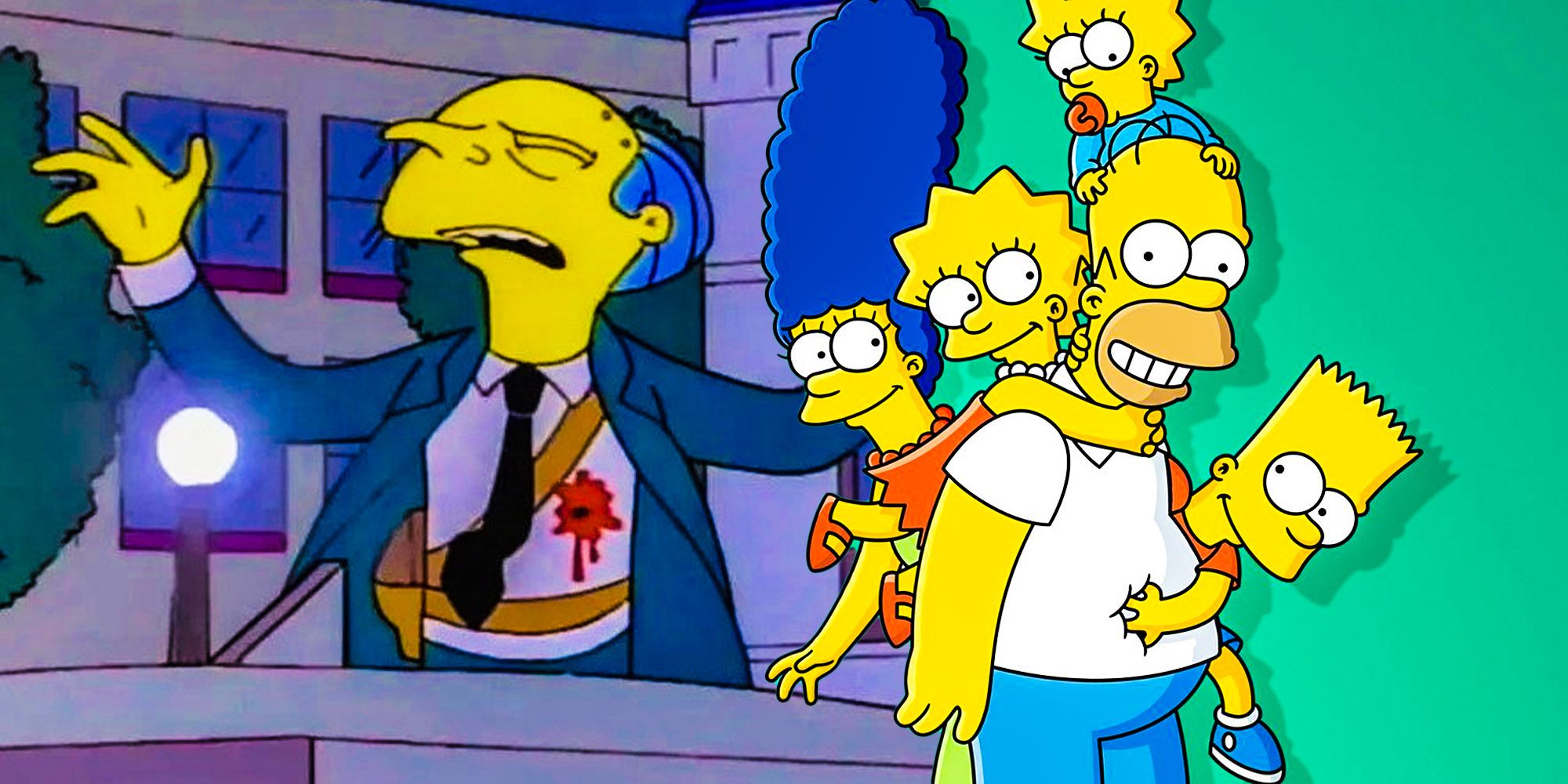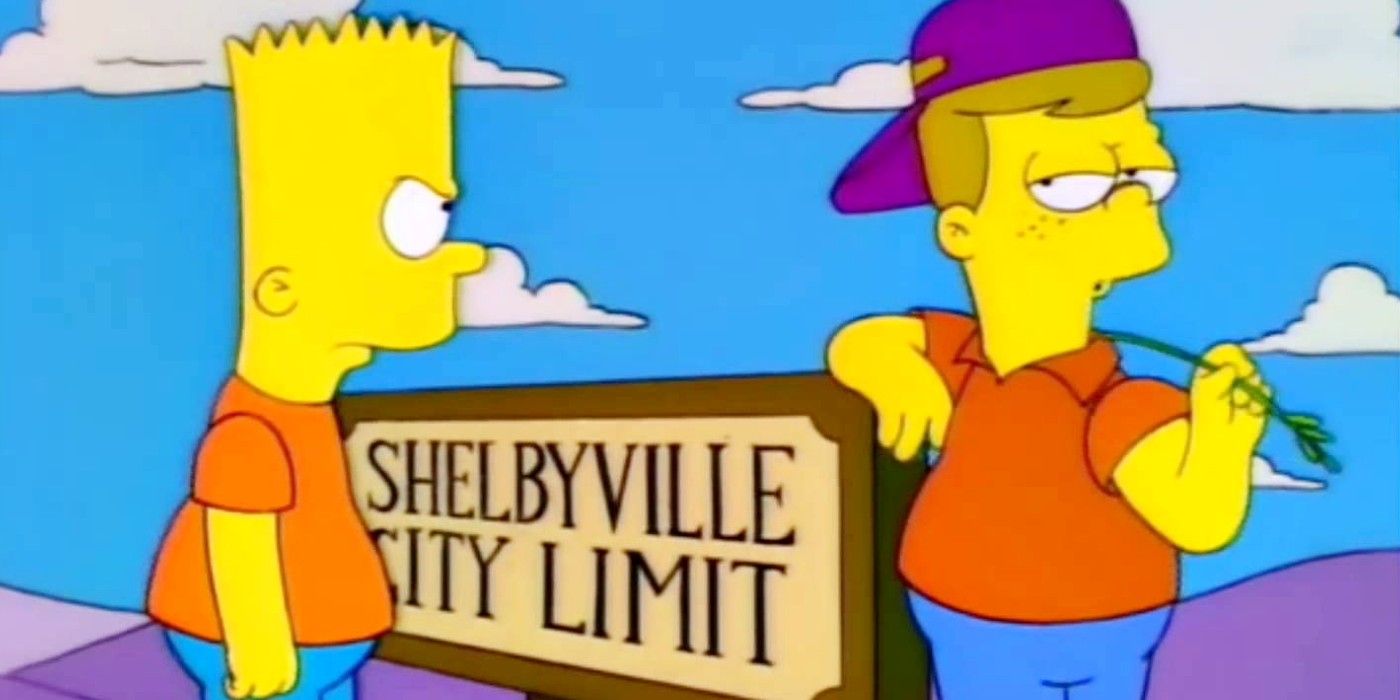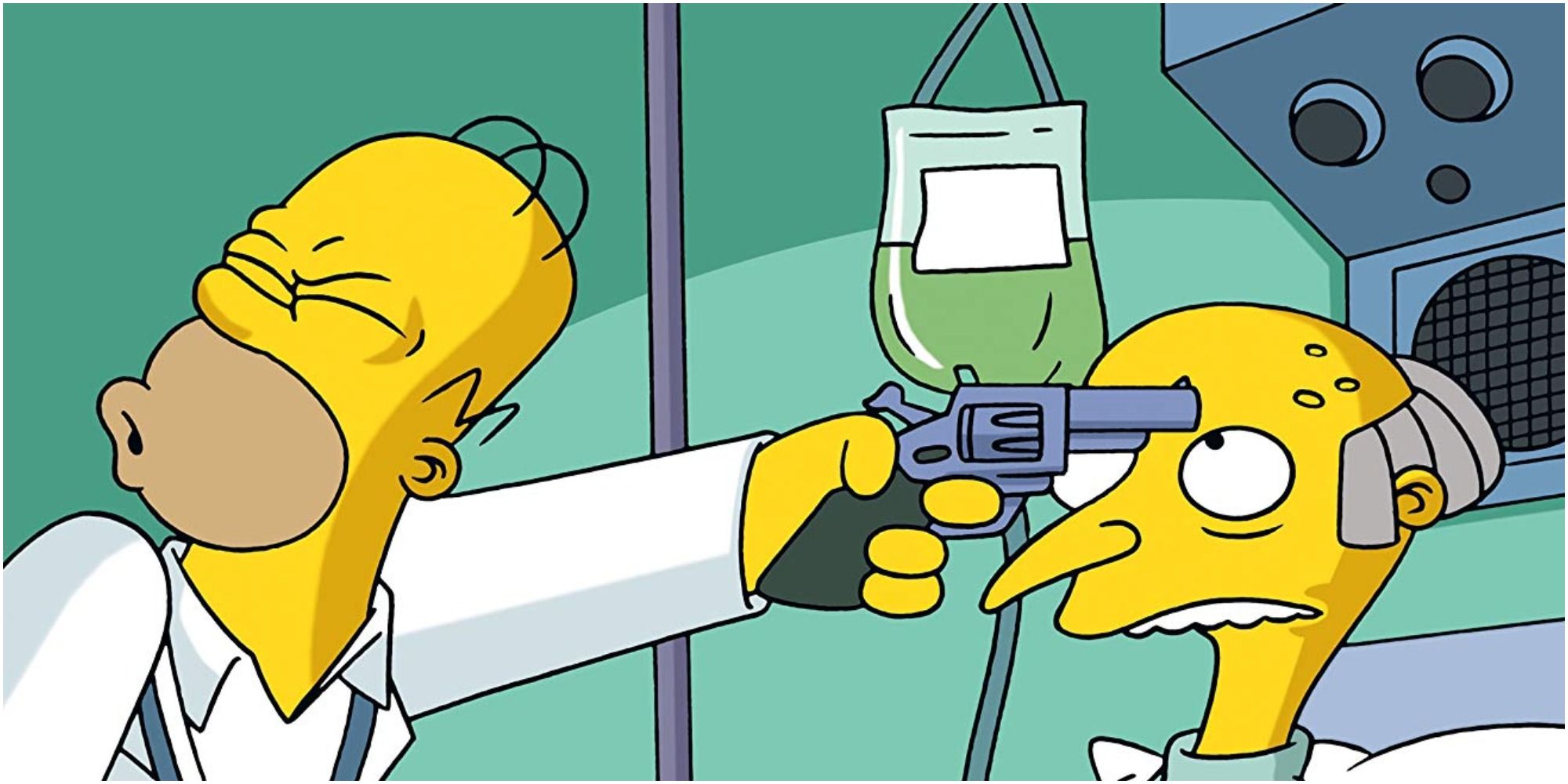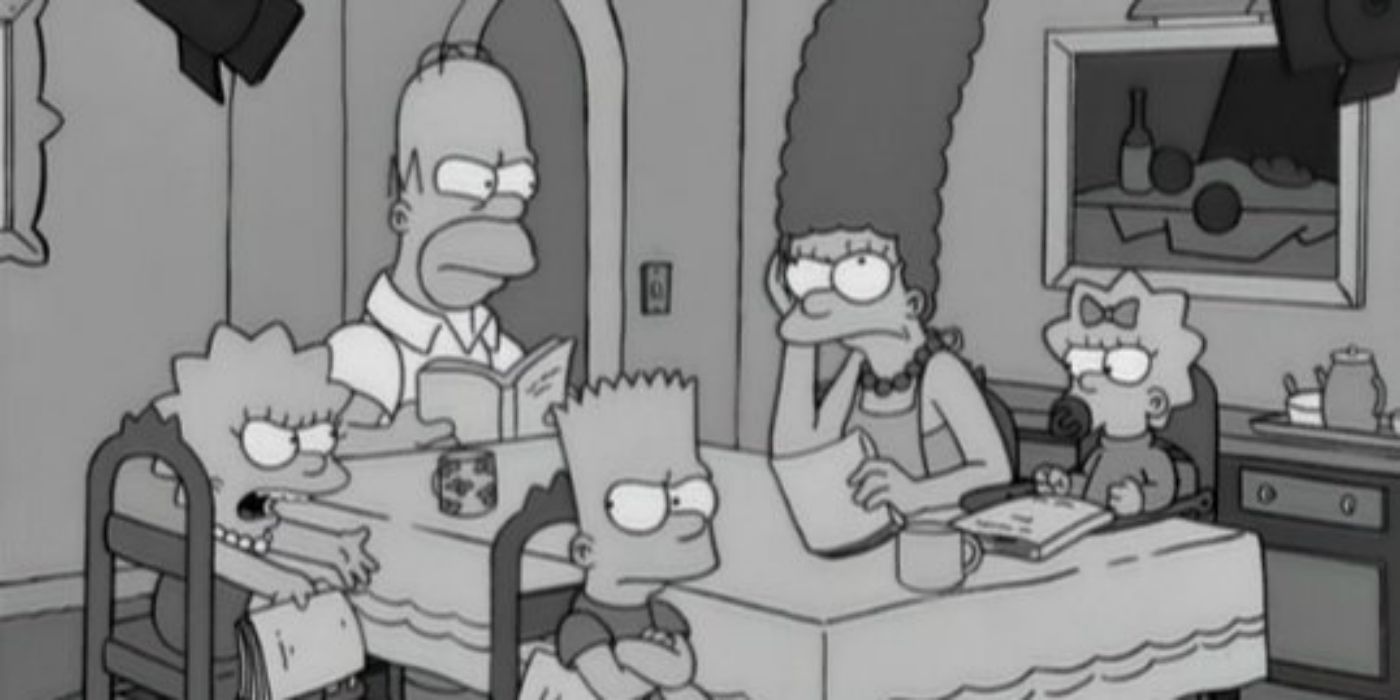It is widely agreed that The Simpsons has been in the midst of a critical decline for some time now but, despite what many critics claim, the culprit is not the show’s season 6 finale and season 7 premiere, the famous two-parter “Who Shot Mr. Burns”. Debuting in 1989 with the caustic, cynical, but ultimately bittersweet Christmas special “Simpsons Roasting On An Open Fire,” the anarchic animated family sitcom The Simpsons was met with solid reviews when the series began. However, it would not be until the show’s third season that the so-called “Golden Age” of The Simpsons started.
Beloved by fans of The Simpsons, the show’s early-season run from season 3 onwards is often considered to be one of the most impressive achievements in television comedy writing history. That claim may sound hyperbolic, but for further context, Time Magazine named The Simpsons the 20th century’s best TV show and the AVClub called the series “television’s crowning achievement.” What remains contentious among fans, however, is how a show so critically lauded and beloved by fans could eventually go on to become a series that is disliked and forgotten by so many in equal measure, judging by the last decade of reviews that The Simpsons have received.
Some chalk the decline of The Simpsons up to changes in the writing staff, while others claim that the showrunner is the one responsible. However, what no one can decide on is when the show started its steady downhill turn. The series is now in its thirty-second season, and many of The Simpsons' most-hated episodes come from after the twentieth season debuted in 2008. Most agree the show’s gradual decline began long before this, but the precise timeline is tricky to deduce. According to the average episode ratings of The Simpsons on the Internet Movie Database, the show started to slip out of critical favor circa the end of season 6. However, despite what IMDB’s average episode ratings say, the Golden Age of The Simpsons did not end with the release of season 7’s cliffhanger “Who Shot Mr. Burns”— not least because it is a great episode.
Season Six Is Among The Show’s Best
With a peerless string of episodes like “The PTA Disbands,” “Round Springfield,” “The Springfield Connection,” and “Lemon of Troy,” (which aired in that order, extraordinarily) season 6 of The Simpsons is part of the show’s creative peak. Episodes like The Simpsons’ Westworld spoof “Itchy & Scratchyland" prove that season 6 features a higher gag-per-minute rate than earlier outings while also prioritizing a balance between sweet family stories and more raucous, anarchic episodes. Not only that, but the brutal satirical edge seen in episodes like “Sideshow Bob Roberts” is sharper and more focused than earlier seasons, with every faction of the American political divide being eviscerated by an outing that managed to be funny despite its trenchant jabs.
But So Is Season Seven
With such a strong set of episodes closing season 6, it is easy to believe that the subsequent season could not hope to recapture the balance struck by The Simpsons in this era. However, after the Mr. Burns story was wrapped up, season 7 started strong with the fan favorites “Radioactive Man” and “Home Sweet Homediddly-Dum-Doodily.” Not only that, but despite sillier outings like the George H Bush spoofing "Two Bad Neighbors", season 7 went on to explore darker and more morally complicated themes as it progressed. Indeed, the season did not recapture the tone of season 6, and instead created some more poignant and at times even outright sad outings like the classics “Bart Sells His Soul,” “Mother Simpson,” “Lisa the Iconoclast,” and “Marge Be Not Proud.” However, while The Simpsons took a definite turn into more dramatic and thoughtful stories in season 7, this run also featured purely comedic outings that earned critical adoration such as ”Bart On The Road,” and “22 Short Films About Springfield.”
Who Shot Mr. Burns Is A Great Episode
It is clear that season 6 and season 7 were not an era of critical decline for The Simpsons, but perhaps the episode (or rather episodes) "Who Shot Mr. Burns" was at fault. The low points of The Simpsons have turned the likable denizens of Springfield into the show’s villains, after all, and this outing cast suspicion over the entire sprawling cast of the show. However, despite being built on parodies of Twin Peaks and Dallas, "Who Shot Mr. Burns" is a thoroughly original and funny outing for the show that works even when divorced from the massive hype that its titular inquiry generated upon release.
A great standalone episode of the series that mines most of its comedy from well-crafted characters, "Who Shot Mr. Burns" avoids the many pitfalls of the show’s critically derided later years by keeping the characters consistent and ensuring any guest stars work in service of the story. The central mystery is engaging, and the titular question is one with a satisfyingly silly, clever answer that fits both the tone of the show and the plot of the outing. The Simpsons Movie even revisited the twist as it worked better than many fans expected. After all, while everyone was wronged by Burns, only Maggie caught him trying to steal candy from a baby and as such, the character has the best reasoning to do the eponymous deed.
When The Golden Age Actually Ended
With "Who Shot Mr. Burns" exonerated, the question of when and how The Simpsons ended its Golden Age remains a contentious debate. Even season 8, with “Homer’s Enemy,” “The Springfield Files,” and “Homer Vs The Eighteenth Amendment,” is far too early to call the series “in decline”. “The Principal and the Pauper” is widely disliked as a standalone outing, but the ninth season contains more beloved episodes than most, and it is not until season 11’s finale, the meta outing “Behind The Laughter,” that the show’s critical fortunes begin to decline in earnest. The departure of legendary Simpsons writer John Swartzwelder did not help the show’s standing among critics, and the gradual dissolution of the show’s writer’s room led the series to lose its distinctive voice as edgier imitators began to gain popularity in its stead. The Simpsons were in undeniable decline by the end of its eleventh season, but the show’s misfortunes do not date back to the two-parter bridging its sixth and seventh outings.





